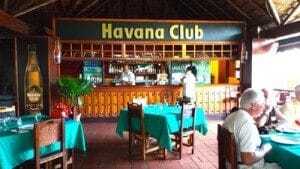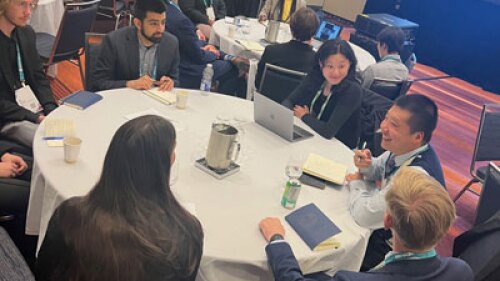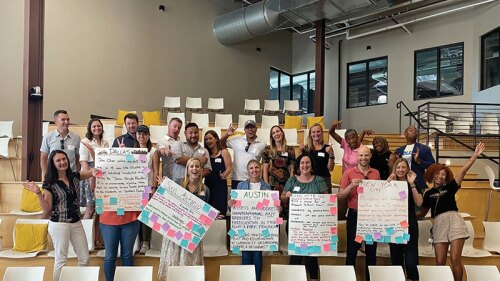In February, I was among a group of ULI Foundation governors who traveled to Havana, Cuba, with our guests for a ground-breaking visit organized for ULI by the National Trust for Historic Preservation, one of the few U.S. organizations with a license to arrange people-to-people tours of the island.
We made our travel plans at a fortuitous time. After they were finalized, President Obama issued a historic decision to reestablish diplomatic relations, which the United States had severed in 1961 after the Cuban Revolution. Our group became unwitting pioneers in recognizing the potential to transform our Caribbean neighbor from a museum of yesteryear into an active commercial and cultural partner. Several challenges and opportunities became apparent during the course of our visit, as follows:
Speaking the Same Business Language
Beyond the English/Spanish language barrier, we lacked a common business vocabulary. Terms that we take for granted like profit margin and value creation and even sales discount are not widely used except among the few Cuban academics and officials who are seeking economic and political reforms. Yet, aspirational words like transformational and even miraculous emerged as we and our hosts strove to understand the environment for new relationships. U.S. Secretary of Commerce Penny Pritzker, who had visited Havana shortly before we arrived, referred to this new vocabulary as “the new language of commercial diplomacy.”
Transitioning to Market Capitalism
We heard firsthand how deeply Cubans believe in key features of Castro’s communism. Free universal health care, education, and housing along with no taxes have produced a comfortable but economically flat society with basic infrastructure and a strong social safety net. The Cuban economic system lacks efficiencies, yet the Cuban people appear to want incentives for individual mobility and the competitive enterprise that we value. They want American goods, services, and technology, but they fear the excesses of rampant materialism.
The basics are in place for a private economy. Through recent reforms initiated by President Raúl Castro that established a form of private property rights, nearly 90 percent of Havanans own their homes through purchase or inheritance. Small, privately owned enterprises like restaurants and galleries are emerging. But virtually all large companies are state owned and managed. Hotels suggest one possible model as Cuba transitions from Soviet-style communism to a market economy; while the hotels are state owned, they are privately operated by Meliã, a well-established Spanish hospitality company. However, it was unclear to us whether this public/private relationship entails risk capital and residuals as well as management and service fees.
Preserving a Sense of Place
Old Havana is a World Heritage Site, exuding a sense of place, culture, and history. Its Spanish-inspired architecture has evolved since the 16th century to the present-day cityscape combining palaces and Italianate fortresses with slum dwellings and thousands of other buildings. The city has embarked on a massive program to restore and repurpose many of these legacy properties. Havana’s Office of the City Historian has unusually broad scope and scale, from urban planning and design to site acquisition, redevelopment, project management, and building operations.
We stayed in the superbly renovated Hotel Saratoga, visited the art deco–style Hotel Riviera with its former casino operated by mafia kingpin Meyer Lansky, and explored a school dedicated to building crafts. Among Havana’s place-making highlights, Old Havana is filled with private restaurants adorning the rooftops, revealing the stunning skyline and an elevated community of low-income apartments, recreation, and even primary schools. Behind its majestic facades, however, the city is characterized by numerous crumbling buildings. The restoration strategy focuses on prominent hotels and other public buildings in major squares and streets. We did not learn how the state values or pays for its property ownership and improvement program. Like the market transformations of Russia and other parts of eastern Europe, the administration of redevelopment may be in place, but the economics are not.
Defining the Size of the Prize
Jorge Mario Sánchez Egozcue, professor of economics at the University of Havana and a senior researcher at the Center for the Study of the Cuban Economy, outlined the potential for U.S.-based tourism to boost the hotel, restaurant, and retail sectors if and when regulatory barriers are removed.
More than 50,000 Americans already visit Cuba annually despite spending restrictions and visa requirements. The total annual tourist flow exceeds 850,000, including 250,000 Canadians. Sánchez forecasted an exponential increase in visits under the new policy, requiring new hotel rooms, upgrades to infrastructure and public services, as well as expanded retail, restaurant, and leisure offerings. He noted that for Cuba to reach its productive capacity, public sector employment would have to be balanced or exceeded by private sector jobs. More than 70 percent of the economy remains in state monopolies.
A sclerotic bureaucracy and a lack of personal incentives severely limit growth. Sánchez criticized the culture of state monopolies in production and trade as “incompatible with a growing mixed economy and international competition.” Despite probing, however, we were unable to benchmark the level of current public investment in urban renovation, the asset values ascribed to state-owned property, or the path to privatization for some portion of this collection of assets.
The arts will play a crucial role in bridging the divide between our countries. Music defines Cuba’s soul and pervades Havana’s life. It suffuses every restaurant, event, and parking lot. We visited a music school in a pastoral and dilapidated setting outside Havana where a community of 600 young musicians thrives. Six musicians showed us their extraordinary talent and an unrealized commercial opportunity. The director spoke passionately of the school’s mission to find and train singers, composers, and instrumentalists from an early age.
But the mismatch between the students’ evident talents and the poor facilities was a dispiriting reminder of the gulf between Cuba’s human capital and its economic limitations. The 61 Studio Gallery opened another window to the commercial potential of individual enterprise. Its owner had assembled a collection of paintings, sculpture, jewelry, and artifacts in her home. These were serious works priced as high as $25,000, reflecting the business savvy and professionalism of an entrepreneur who had navigated a formidable bureaucracy to establish her independent model. Both visits opened other avenues for bridging ULI’s mission with their prospects.
An Agenda for ULI
The Institute has a long tradition of creating and disseminating thoughtful, practical knowledge on land use policies and practices. The scope and complexity of Cuba’s transition will require a robust, sophisticated, and yet cautious approach—one that is mindful of the realities of a transitional economy. We must go beyond real estate issues to embrace social, cultural, and political factors, while avoiding overreach in a still-tenuous political and social climate. ULI’s approach could include the following: 1) sponsorship by Havana’s Office of the City Historian, which so impressed us with its strategic breadth, operational depth, technical skills, and substantial budget; 2) project funding by independent, nongovernment philanthropic sources with a commitment to Cuba’s future as a market-based economy; 3) involvement of respected Cuban reformers who understand the workings of both social and market economies; and 4) ULI senior leaders with specific experience in various types of public/private partnerships.
To expand on these insights, we plan to issue a ULI Foundation governors’ report with contributions from other participants and selected research data. Closing observations for now include the following:• Americans and Cubans alike are enthusiastic about the prospects for change;• The process of change must be strategic to prioritize opportunities; entrepreneurial to capture them; and disciplined to avoid overwhelming the culture;• Property rights, entitlements, and other legal provisions for land use and development are prerequisites for the process and product innovations that ULI members prize;• Tourism in its many forms offers immediate, scalable market potential, but requires significant investments in infrastructure and hospitality services;• The massive transition from government to business employment is a human resource management and training challenge—especially in visitor services; and• ULI members can make major contributions as “thought leaders” and practitioners in all of the above.
ULI Foundation Governor Mahlon “Sandy” Apgar IV is a housing, infrastructure, and real estate consultant who advises the public and private sectors on strategy, public/private partnerships, and complex urban projects. He served as assistant secretary of the U.S. Army under President Bill Clinton, where he oversaw its global real estate portfolio.




